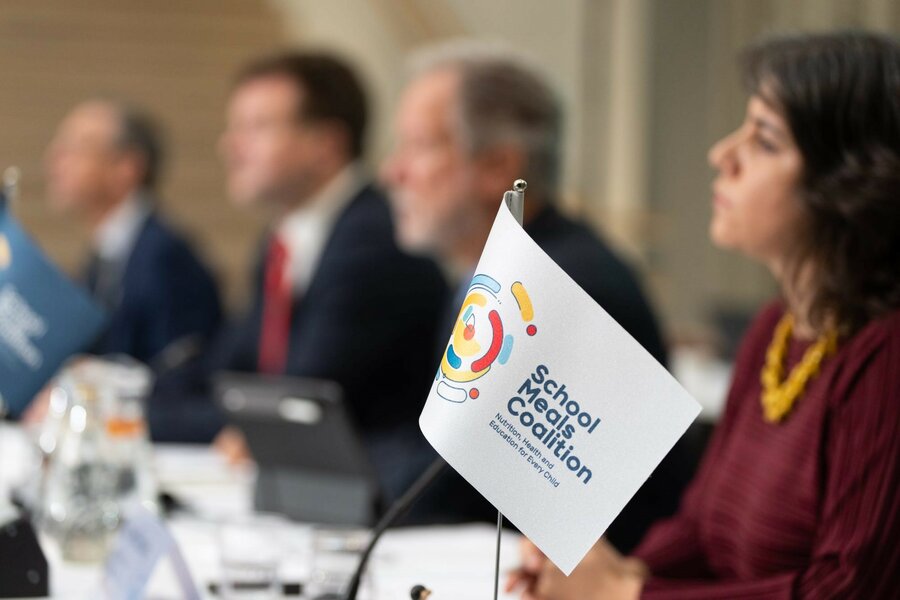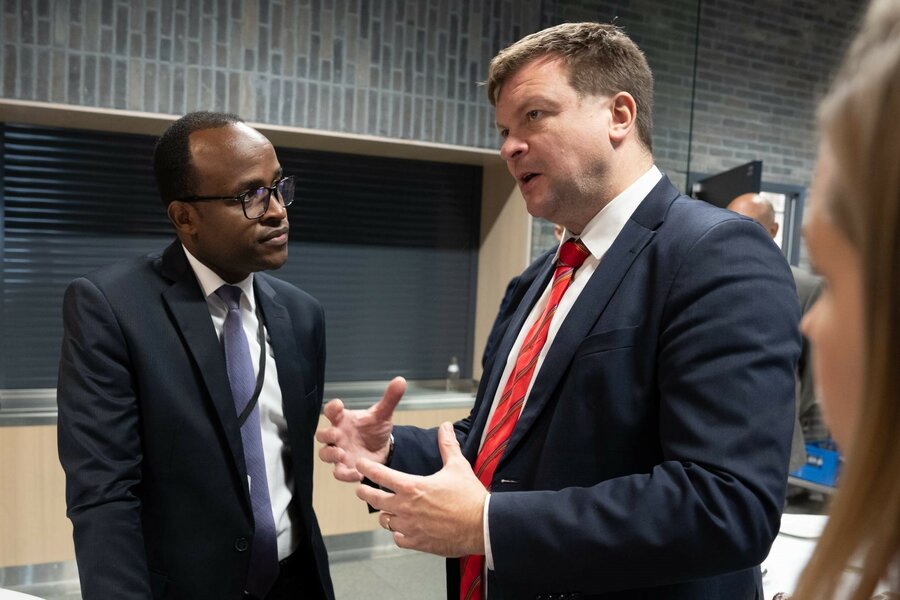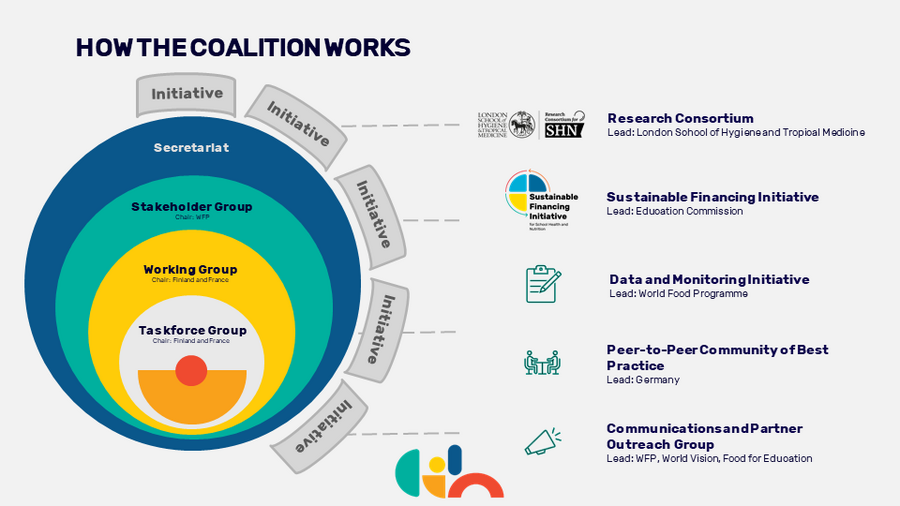Comment: How a little advocacy can turn into a super-coalition

The World Food Programme’s first school meals project started in Togo in 1963. Since then, WFP and school meals have become synonymous. When France and Finland were concerned about the state of school meals programmes due to COVID-19, they knew where to go.
In October, just a year after its launch, the Coalition hosted two key moments: School Meals Coalition Week and the first ministerial meeting of its taskforce in Helsinki. Were these events just multilateral talk shops? Yes and no.
Talk shops are necessary. The Coalition can only thrive through conversations between stakeholders, both internal and external – these can be pivotal in leading to action. They not only facilitate the Coalition’s growth but expand its sphere of influence, giving it boundless potential to create change.

But if conceived and cultivated in the right way, talk shops can also create movement and action. Think muscles. The Coalition serves as the bone, and its Secretariat and five networked initiatives function as the tendons, connecting the collective fibres (here, the Coalition members), while strategic moments like the week and Helsinki ministerial do the flexing.
School Meals Coalition Week and ministerial meeting outcomes
The secretariat that supports the School Meals Coalition convened, with some of its closest but also new partners, more than 20 sessions over five days – building a solid platform for 2023 and beyond. We worked to ensure that the week had varied and diverse sessions and that all represented work happening in partnership – not just what one partner could do alone. The daily menus of sessions corresponded roughly to each of the five networked initiatives of the Coalition.
Two tangible outcomes emerged from the week: an evidence-based statement from the Research Consortium for School Health and Nutrition (one of these five initiatives) briefing member state policymakers and decision-makers; and a call to action from members of the Coalition Stakeholder Group, which includes multilateral, nongovernmental, academic, and philanthropic organizations.

Both outcome documents were presented during the ministerial meeting and acknowledged in the School Meals Coalition Leaders’ Declaration issued at the end of that session – complementing a range of new commitments coming from individual members of the Task Force that occurred throughout the day-long meeting.
Through the level of partner engagement and the breadth of content represented across the sessions, the week was also a demonstration of what is happening, what can be done and what needs to be done for the Coalition to achieve its ambitious goal to ensure every child has access to a healthy meal in school by 2030.
Coming on the heels of the Transforming Education Summit (TES), School Meals Coalition Week and the ministerial meeting gave a platform for Coalition stakeholders to express their views that the global food crisis’ impact on schoolchildren did not feature high on the summit’s agenda. The detrimental impacts of the global food and education crises on schoolchildren was a recurring theme throughout the conversations and was strongly emphasized in all three outcome documents.
In the end, this collective advocacy ensured that all Coalition stakeholders, through the three outcome documents, rallied around common positions that called for:
- National governments, development partners, international financial institutions and multilateral development banks to mobilize more resources for the expansion of school meals programmes;
- Including a school meals indicator in the Sustainable Development Goal 4: Quality Education framework revision (support for which did emerge from the TES process);
- Continuing the momentum and ensuring school meals are elevated on the agendas of key global moments, including the Global Ministerial Meeting of the full Coalition in Paris in 2023 (called for by Leaders’ Declaration) and the United Nations Summit of the Future in 2024 (referenced by the Research Consortium statement and call to action).
The time is now
The expression ‘use it or lose it’ can aptly refer to how muscles lose strength and size, atrophying if not used over time. A coalition functions the same way.
Moments like School Meals Coalition Week and the Helsinki ministerial engage the system to avoid coalition atrophy, strengthening and flexing the collective muscle of the Coalition to build and sustain a global movement that drives action.
So, how can partners help the Coalition strengthen and flex its muscles heading into 2023 now that the week and ministerial meeting are over?
First, you can join the Coalition if you haven’t already; if you have, you can invite partners to do the same.
Second, if you did not participate in October events, you can catch events online – to learn and give us feedback.
Third, you can subscribe to the Coalition’s weekly newsletter to stay up to date on forthcoming advocacy moments and products and events of its five initiatives.
Fourth, in countries that have signed the Declaration of Commitment, you can support local actors to establish national chapters (as is the case in Kenya through the partnership between WFP and Food4Education and the Kenyan government).
By doing so, you will contribute to what is now becoming a Super Coalition that aggregates various networks and flexes its collective muscle to influence global processes in support of schoolchildren.
